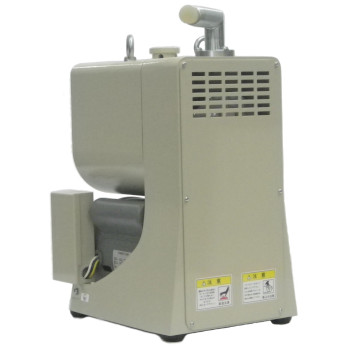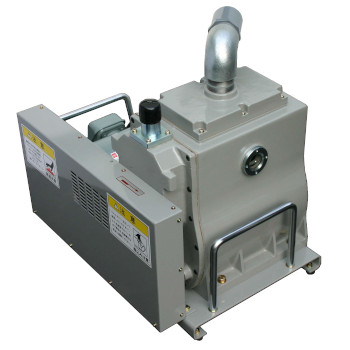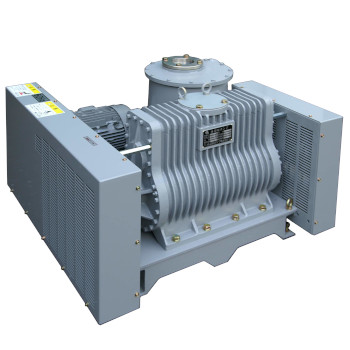Vacuum pump mechanism
Oil-sealed rotary vacuum pumps can be divided into three major structural types.
Gaede type vacuum pump – GP-series

The two vane plates connected to the rotor are always pressed against the cylinder as it rotates, and this pump inhales and discharges gas due to the change in volume of the space caused by the rotation.
Cenco type vacuum pump – CP-series

The seal between the inlet and outlet is made by a partition plate (vane) that moves up and down, and the rotor shaft is eccentric, matching the center of the cylinder, and the rotation of the rotor causes a volume change in the cylinder to cause an inlet and outlet pump.
Kinney type vacuum pump – KP-series

The Kinney type is similar in structure to the Senko type, but it is inhaled and discharged by the eccentric rotor and pendulum up and down and neck movement.
Although this type is the most prone to vibration, it is rarely broken down and is often used for relatively large displacement pumps.
The KP-3000 model has two pendulums and the phase of the eccentric rotor is opposite to the axis of rotation in order to take balance.
